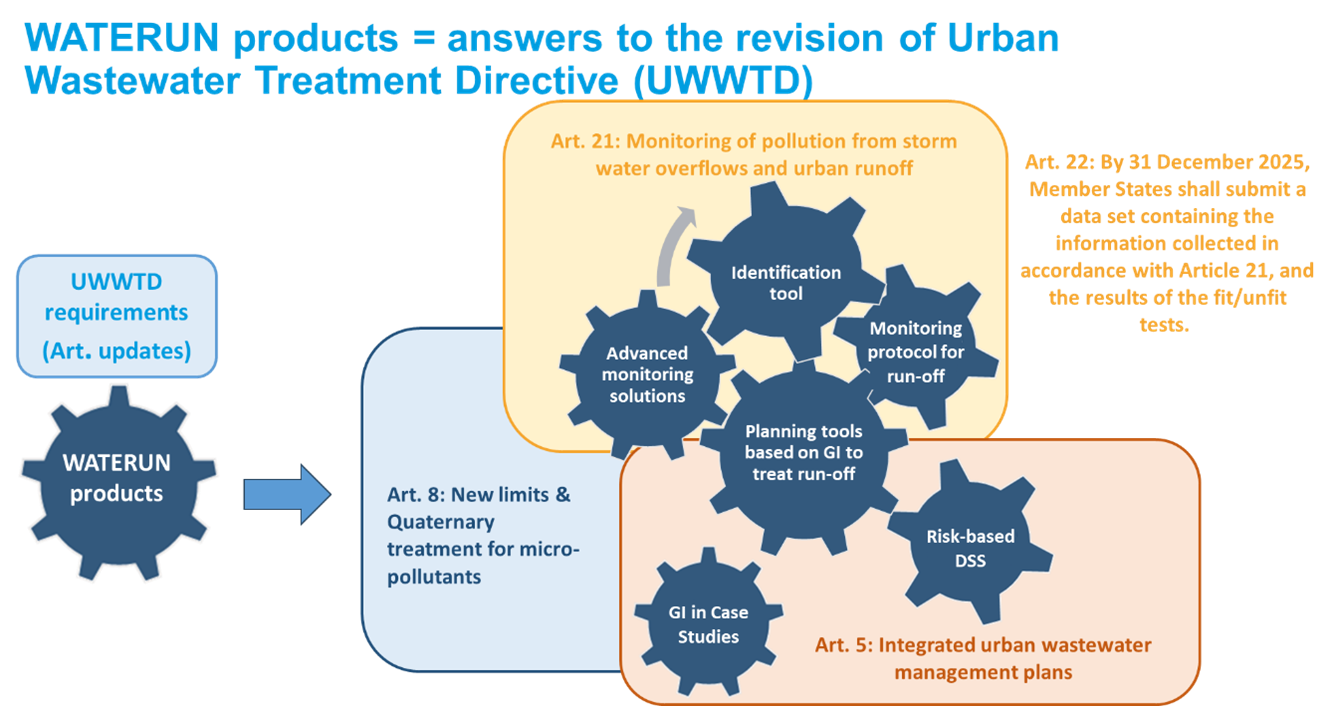Urban wastewater is one of the main sources of water pollution if it is not collected and treated. In 1991, the EU’s Urban Wastewater Treatment Directive (UWWTD) was adopted and has been in force for over 30 years. The Directive aims to protect human health and the environment from the effects of untreated urban wastewater. The revised Directive is expected to be adopted after the EU elections and before the end of 2024.
A revised UWWTD will address identified shortcomings and new societal needs. Pollution levels from rainfall events, stormwater overflows and urban runoffs represent a sizable remaining source of loads sent to the environment. For instance, the increased frequency and severity of natural disasters, such as floods, lead to water pollution by washing pollutants and toxic substances into rivers, lakes, and groundwater aquifers.
The new UWWTD will introduce the extended producer responsibility (EPR) for medicinal products for human use and cosmetic products, to cover the costs of the new quaternary treatment (to remove micropollutants from urban wastewater). Producers (complemented by national financing) will cover at least 80% of the costs.
The Directive will include provisions that aim to increase the transparency of the sector, in which EU Member States (MS) will have to ensure that relevant information is made available to the general public. As implementation costs will be covered mainly by tariffs, it will be paramount to raise and promote consumer awareness of the investment and operational costs of the sector, as well as how these costs are covered.
Additionally, EU MS will have to establish integrated urban wastewater management plans in drainage areas to combat rainwater pollution (stormwater overflow). This measure will apply to all agglomerations ≥100 000 of population equivalent (p.e.) and between 10 000 p.e. and 100 000 p.e. (where, for instance, stormwater overflow poses a risk to the environment or human health). The management plans will have to include: 1) an analysis of the initial situation of the drainage area; and 2) objectives and measures for reducing pollution from stormwater overflows. The objectives are set as indicative and non-binding.
The uniform implementation of the Proposal's objectives will be complex considering the current state of the sector (such as the diversity between different Member States and within their own territories). Despite this challenging context, the revised Directive will outline an ambitious direction and objectives.

Authors: WAREG Secretariat, WAREG – European Water Regulators, secretariat@wareg.org